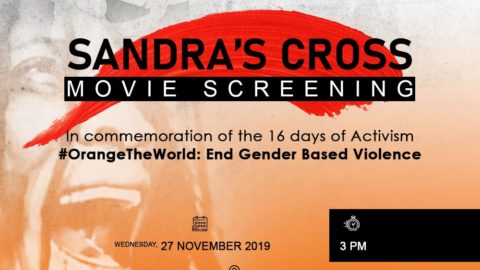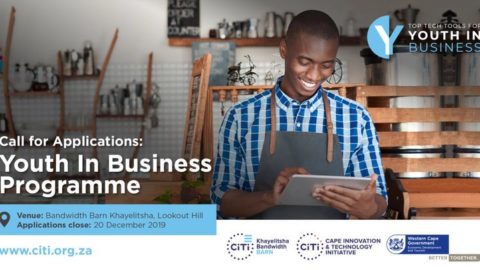By ‘Sola Fagorusi
 In case you missed the news, #iStandWithAhmed was one of the biggest news scoops of last week. The news had the mainstream and online media by the nape of the neck and everyone who cared to know about the episode. For the uninitiated, the hashtag which trended on twitter, instagram and facebook was the public’s way of seeking justice for a 14-year-old Sudanese boy. Ahmed Mohamed, a student at MacArthur High School in Irving, Texas, United States of America was arrested, handcuffed and fingerprinted after bringing a homemade clock to school that was mistaken for a bomb. He had intended to show his engineering teacher when another teacher saw it and the police was called leading to the lad’s interrogation for about an hour and thirty minutes and his detention in a juvenile facility.
In case you missed the news, #iStandWithAhmed was one of the biggest news scoops of last week. The news had the mainstream and online media by the nape of the neck and everyone who cared to know about the episode. For the uninitiated, the hashtag which trended on twitter, instagram and facebook was the public’s way of seeking justice for a 14-year-old Sudanese boy. Ahmed Mohamed, a student at MacArthur High School in Irving, Texas, United States of America was arrested, handcuffed and fingerprinted after bringing a homemade clock to school that was mistaken for a bomb. He had intended to show his engineering teacher when another teacher saw it and the police was called leading to the lad’s interrogation for about an hour and thirty minutes and his detention in a juvenile facility.
It turned out following post analysis of the event that the eloquent bespectacled kid was a victim of stereotypes. With the Islamic State of Iraq and Syria on the rampage in parts of Iraq, Syria and parts of Libya, the world has become a ‘tougher’ place for Muslims and other citizens of the Arab world. In Nigeria, what exists is some form of misguided resentment by a number of southerners for Muslims of northern extraction given the exploits of Boko Haram, the Islamic militant group. The intervention of AmnehJafari, a student of psychology at the University of Texas Arlington, changed the narrative for Ahmed who has since become a celebrity beyond the landscape of Texas. She was the first to tweet using the hashtag – #iStandWithAhmed What she may not understand is that, she started a movement that will not only stand with the teenager alone but also with several people his kind who are regularly marginalised and have expression of love kept quickly away from them especially in public places. If Martin Luther King Junior was alive, he possible will have tweeted – ‘Injustice to one is injustice to all and #iStandWithAhmed’.
Ahmed’s story is another instance of social media giving voice to those who ordinarily will not have been able to get the world to hear their loud-pitch screams. It has become apparent that the school and the police department’s action were borne out of knee-jerk Islamophobia. Otherwise, it is strange that the school was not evacuated when they suspected that it was a bomb or anything done to contain the situation other than grill him in the absence of his parents. But then, it is all ending well the bright faced kid. @POTUS, the official handle of the President of the United States had tweeted – ‘Cool clock, Ahmed. Want to bring it to the White House? We should inspire more kids like you to like science. It’s what makes America great.’ Facebook founder, Mark Zuckerberg has thrown Ahmed an invite to the organisation’s headquarters. Google is also hoping to be a host to Ahmed. Twitter is offering him an internship position asides several other similar offer of admission, including one from the highly revered Massachusetts Institute of Technology where kids with tech skills long to be.On the other side, it will also be good to ‘hear’ the republican presidential hopeful,Donald Trump’s comment on this, especially given his preference for hurling racist remarks at immigrants.
@POTUS, the official handle of the President of the United States had tweeted – ‘Cool clock, Ahmed. Want to bring it to the White House? We should inspire more kids like you to like science. It’s what makes America great.’ Facebook founder, Mark Zuckerberg has thrown Ahmed an invite to the organisation’s headquarters. Google is also hoping to be a host to Ahmed. Twitter is offering him an internship position asides several other similar offer of admission, including one from the highly revered Massachusetts Institute of Technology where kids with tech skills long to be.On the other side, it will also be good to ‘hear’ the republican presidential hopeful,Donald Trump’s comment on this, especially given his preference for hurling racist remarks at immigrants.
It took ordinary citizens giving the hashtag attention and a number of celebrities getting on the online train to get the campaign global. Of note is the effort of the co-founder of Makerbase – a directory of apps and sites, along with people who’ve made them to inspire other techies to contribute to Ahmed’s future endeavours and creating the #HelpAhmedMake hashtag in addition. The #iStandWithAhmed is not a conventional online campaign since it was not planned. There are lessons to however draw from it. Campaigns being run on dedicated sites can connect the use of social media to their fund drive or attention needing campaigns for a particular cause most especially. Social media will help give the human touch to the campaign especially if baseline studies are shared. One of such sites where causes are made public is www.causes.com, the platform is the place to discover, support and organize campaigns, fundraisers, and petitions around the issues that impact you and your community.’ It works by ‘building a passionate audience around social, political and cultural issues, our members can collaborate quickly and effectively on solutions to today’s toughest problems.’Crowdfunding for social causes is quickly gaining in popularity. These sites are reordering how NGOs, non-profits, and student organisations raise money for events and charitable causes. Other similar ones like Indiegogo,Kickstarter,Crowdrise,Razooand GoFundMe also exist. A number of sites to start a petition are also available in the digital media space and can be deployed for similar drives.
It was a mobile phone that Amneh used to start this campaign. Nigeria’s internet users reportedly have 84% connecting through the platform through mobile phones. Also experiencing a quantum leap is the number of Nigerians on Facebook monthly, which is an estimated 15 million as at mid-2015. One hopes that the use will go beyond basic socialising and users will begin and continue to deploy same heavily against various societal ills especially when voiceless citizens our involved. That will be our own way of truly saying #iStandWithAhmed. It will be our way of standing with victims of rape, incest and other forms of injustice that have gone unchecked for too long.
………………………………………………………………………………………………
 Sola Fagorusi is a social entrepreneur and a prized freelance writer with a bias for youth and rural development. He started off as a youth staff with Action Health Incorporated in 2001. The Obafemi Awolowo University, Ile-Ife alumnus currently manages the programmes of OneLife Initiative, Nigeria. ‘Sola is a DESPLAY Africa (Africa’s foremost and most consistent annual youth democracy academy) fellow and has been on its faculty since 2011. Keenly interested in governance and pan-Africanism, he volunteers as online editor of YouthHub Africa; a cyber-community for young Africans involved in social change. He believes in the efficacy of oratory and writing as tools to drive developmental engagements. As a freelance writer, he spares time to pen thoughts on contemporary societal issues and is a weekly columnist with Nigeria’s most read daily ? Punch Newspaper. His training and capacity cuts across democracy and governance, leadership, micro-enterprise, ICT4D, SRH, value chains, development communication and policy issues. He tweets @SolaFagro and blogs at www.kadunaboy.com
Sola Fagorusi is a social entrepreneur and a prized freelance writer with a bias for youth and rural development. He started off as a youth staff with Action Health Incorporated in 2001. The Obafemi Awolowo University, Ile-Ife alumnus currently manages the programmes of OneLife Initiative, Nigeria. ‘Sola is a DESPLAY Africa (Africa’s foremost and most consistent annual youth democracy academy) fellow and has been on its faculty since 2011. Keenly interested in governance and pan-Africanism, he volunteers as online editor of YouthHub Africa; a cyber-community for young Africans involved in social change. He believes in the efficacy of oratory and writing as tools to drive developmental engagements. As a freelance writer, he spares time to pen thoughts on contemporary societal issues and is a weekly columnist with Nigeria’s most read daily ? Punch Newspaper. His training and capacity cuts across democracy and governance, leadership, micro-enterprise, ICT4D, SRH, value chains, development communication and policy issues. He tweets @SolaFagro and blogs at www.kadunaboy.com







